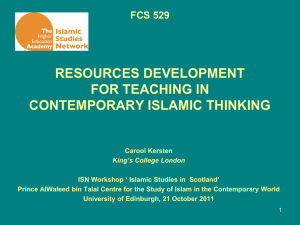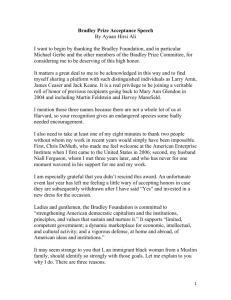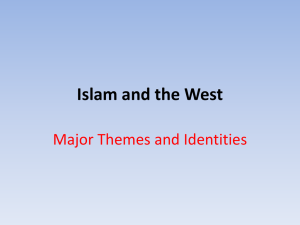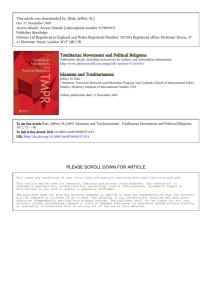What we now call Islamic Finance originated in the mid
advertisement
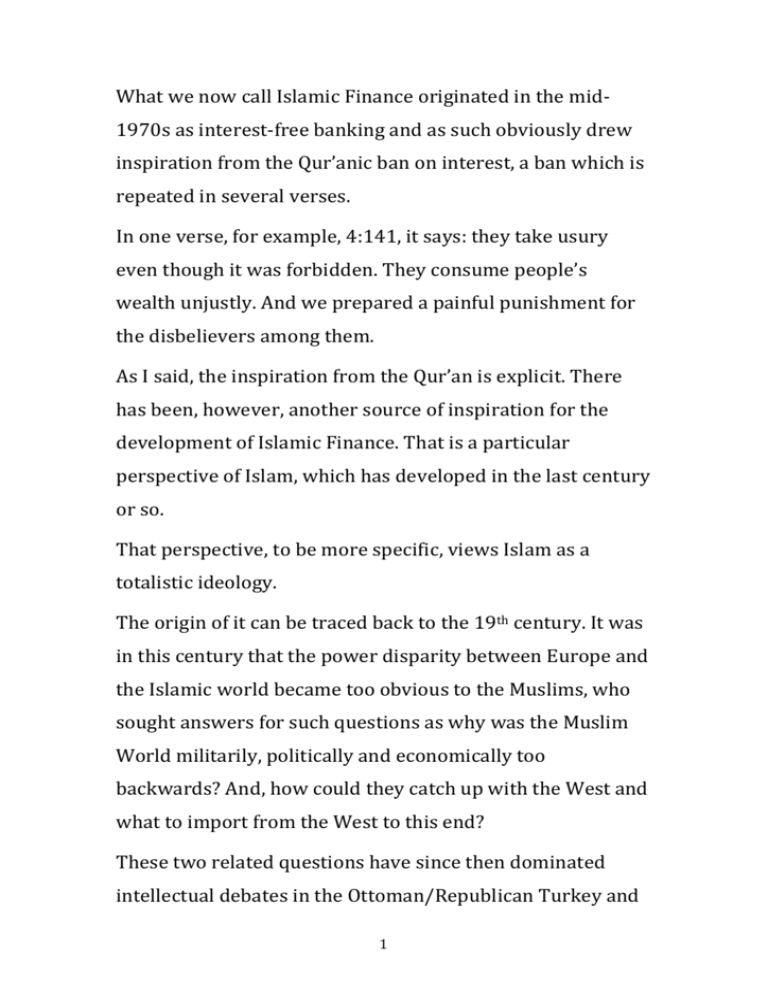
What we now call Islamic Finance originated in the mid1970s as interest-free banking and as such obviously drew inspiration from the Qur’anic ban on interest, a ban which is repeated in several verses. In one verse, for example, 4:141, it says: they take usury even though it was forbidden. They consume people’s wealth unjustly. And we prepared a painful punishment for the disbelievers among them. As I said, the inspiration from the Qur’an is explicit. There has been, however, another source of inspiration for the development of Islamic Finance. That is a particular perspective of Islam, which has developed in the last century or so. That perspective, to be more specific, views Islam as a totalistic ideology. The origin of it can be traced back to the 19th century. It was in this century that the power disparity between Europe and the Islamic world became too obvious to the Muslims, who sought answers for such questions as why was the Muslim World militarily, politically and economically too backwards? And, how could they catch up with the West and what to import from the West to this end? These two related questions have since then dominated intellectual debates in the Ottoman/Republican Turkey and 1 the broader Muslim World. Deeply affected by such European ideas/ideologies as materialism, positivism, rationalism, scientism, socialism, liberalism, constitutionalism, and others, the intellectual debates eventually touched the potential contribution of Islam, as believed to be and practiced, to the said disparity. One very infamous charge, uttered by the french Ernest Renan, claimed, for example, that Islam was an obstacle to science and progress, and hence was the cause of backwardness in the Islamic world. To a large extent, Modern Islamist ideology was born as a defensive response to these and similar charges against Islam, various responses over time turning into one school of political thought, which has since then survived. Broadly speaking, the early Islamists agreed that the Islamic world was on the decline, but objected to total Westernization in order to halt the decline. Instead, Muslims must have imported only science and technology from the West, not its morality, culture, laws, and religion. It was not explicitly stated, but the underlying assumption was that Islam could satisfactorily regulate the latter. Islamists also pointed out that Islam was different than Christianity. Hence, the latter’s exclusion from politics, economy, etc. was understandable/legitimate because Christianity was an 2 obstacle. But, Islam was not. Islam was progressive and its principles were at peace with science and conducive to progress, however the term was understood. Out of this response evolved the most fundamental Islamist claim: to my knowledge, finding its most explicit expression in Hasan al Banna, the founder of the now transnational Muslim Brotherhood movement. “Islam is a perfect system of social organization, which encompasses all the affairs of life.” In other words, it had a something to say on every aspect of life. Two prominent Islamist thinkers, Ebu’l Ala al Mawdudi from Pakistan and Sayyid Qutb from Egypt, gave the final touch to the development of the view that Islam was a total way of life, a total organization of life. And, by virtue of being God’s last revelations to humanity, that way of life was also perfect. Economy was no exception. It also had be organized and regulated according to Islam. Hence developed what is called ‘Islamic Economics’, the term popularized by by Ebu’l Ala Al Mawdudi. It was claimed that Islam preached and mandated certain rules and norms for the organization and regulation of economy. Extracting all those rules and norms that are claimed to be governing economic behavior, Islamic Economists 3 constructed a ‘Homo Islamicus’ as an alternative to ‘Homo Economicus.’ This Homo Islamicus behaves according to an ethics, which was based on the Islamic worldview and from the primary sources of Islam, i.e., the Qur´an and Hadeth. He pursued individual self-interest, but in balance with a social interest and in accordance with God’s injunctions. This man maximises not only his own satisfaction but also religious spirituality, morality and social interest (altruism). I do not know whether there ever lived such a man. What is, I believe, fair to claim that at least at the micro level of nonstate religious mileus, jealously guarded by sufi orders and modern religious groups, certain, if not all, features of Homo Economics were kept alive. Especially, these religious groups developed a particular consumption ethics among its members. To put it in another way, non-state religious groups helped forming what I would like to call ghetto economies, or the Muslims’ equivalent of the Jews’ Kosher Economy, where through peer pressure and surveillance the members avoided consumption of certain food and drinks, which, they believed, contained forbidden materials. The members of these ghetto economies also refrained from doing business with the interest-based banking sector. At the very least they avoided those transactions that involved 4 interest as much as possible. We do not have a data, of course, about the exact size of these economies in the mid1970s. The overwhelming majority of the Muslims was possibly not active in these economies as simply they did not care. But, some did. Definitely. Most, if not all, Islamist thinkers and intellectuals, who helped develop the literature on Islamic Economics, were themselves leading figures in these religious groups. Hence, based on their very personal experiences, they might have thought that homo Islamicus is real, and practical. It should also be kept in mind that in large part driven by state-led industrialization in the 1950s and the 1960s, the Muslim world experiences rapid urbanization and industrialization: as a result, generally urban-based religious groups grew in tandem unprecedentedly in history. Yet, without the necessary capital base in the Muslim World, Islamic Finance would still remain as an idea. It became a reality when the Arab Gulf states became flush with money in the 1970s thanks to the oil crisis. Some Gulf businessmen must have been persuaded by some Islamist intellectuals and thinkers that interest-free banking was viable and profitable. Not surprisingly, two prominent entrepreneurs, Mohammed bin Faisal and Saleh Abdullah Kamel, had close links with the Islamist figures across the Muslim World. 5 And it started. Since then Islamic Finance has turned into an industry offering a more variety of other banking services. And therefore, it is now often described as not just interestfree banking, but more broadly “shariah- compliant banking.” While a totalistic view of Islam inspired the idea of Islamic Finance, two factors helped its realization: a sudden accummulation of capital in the Arab Gulf states, and the presence of a ghetto religious economy in those countries. Islamic Finance could penetrate into that economy in large part thanks to its entrepreneurs had already cordial relations with different non-state religious actors in the Muslim World in large part thanks to the pan-Islamist policies of Saudi Arabia starting in the 1960s under King Faisal. 6







